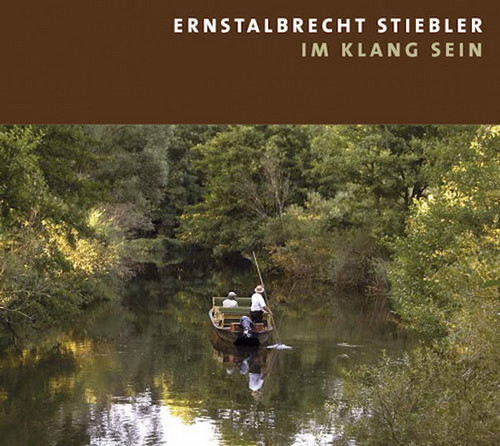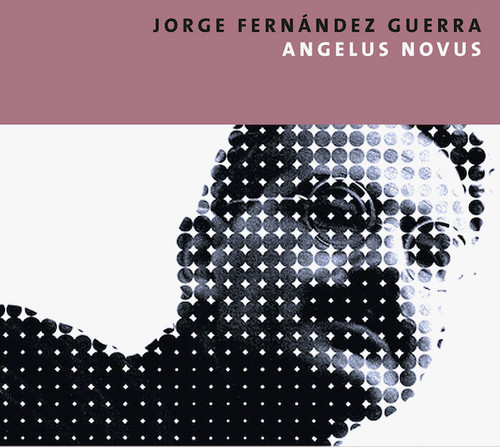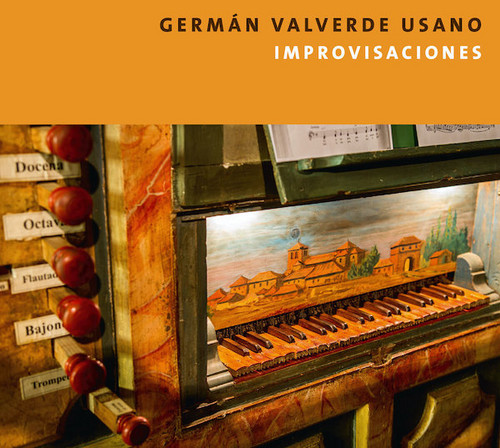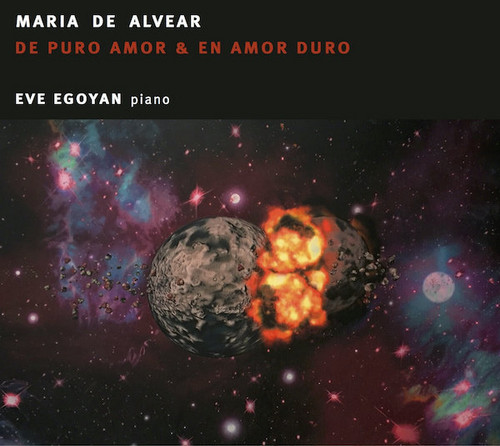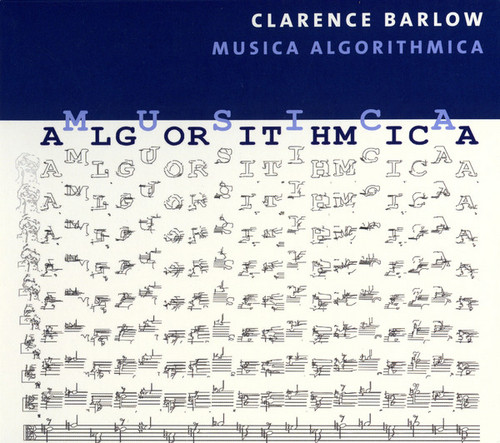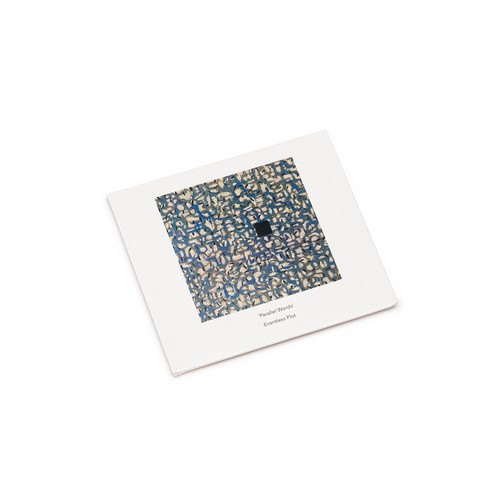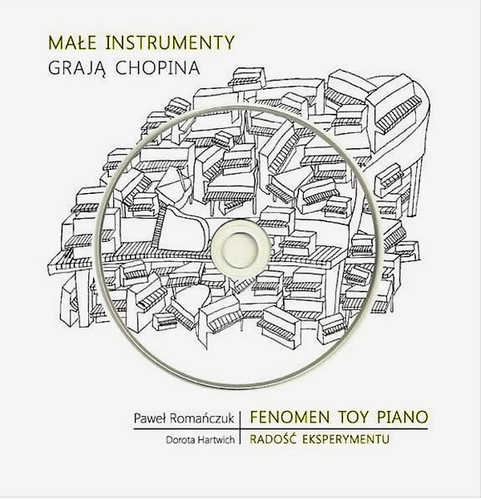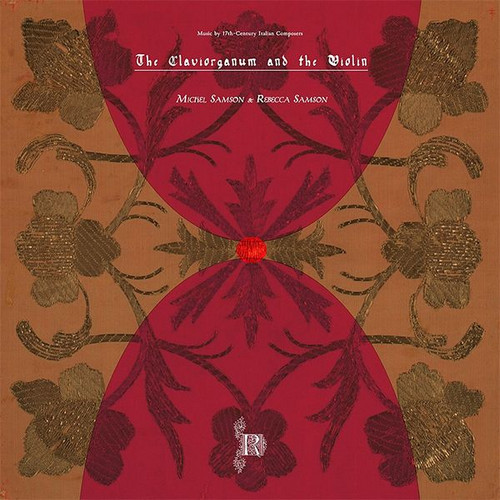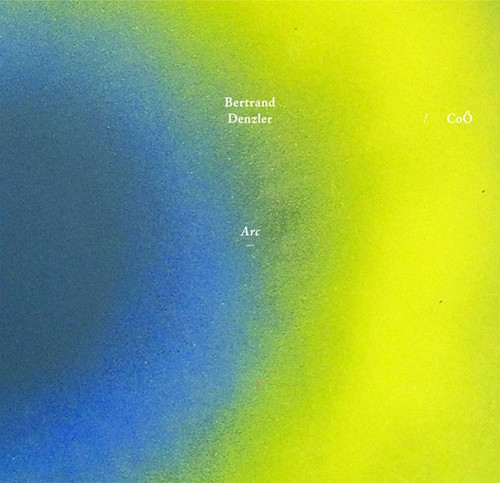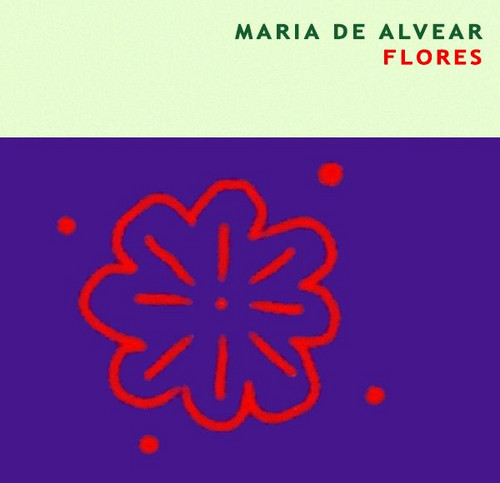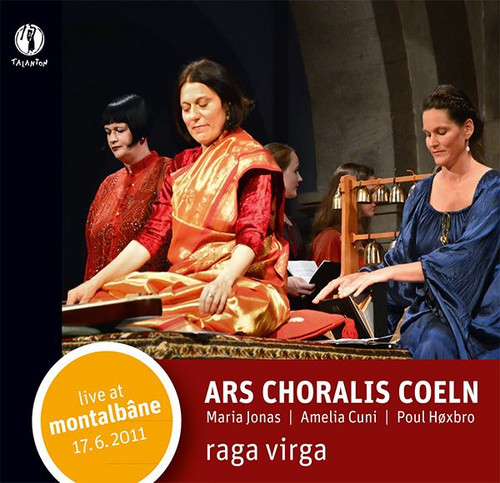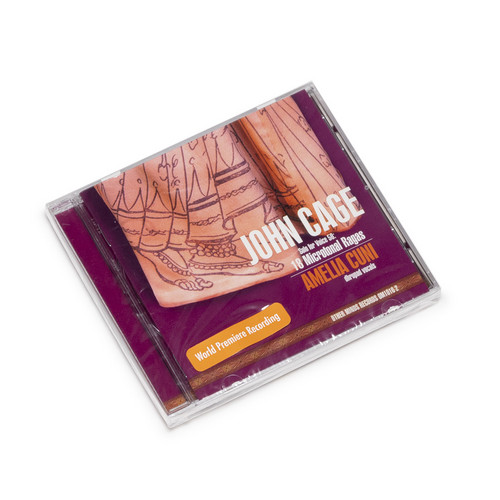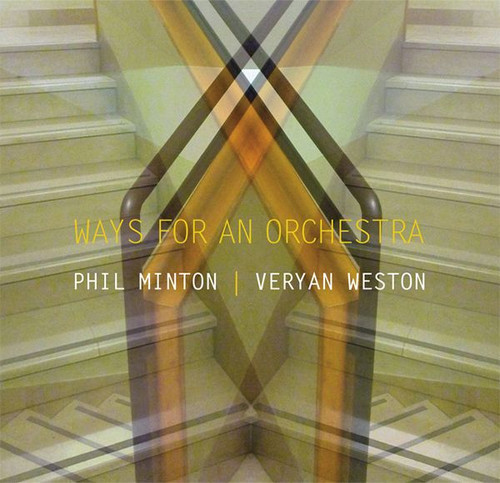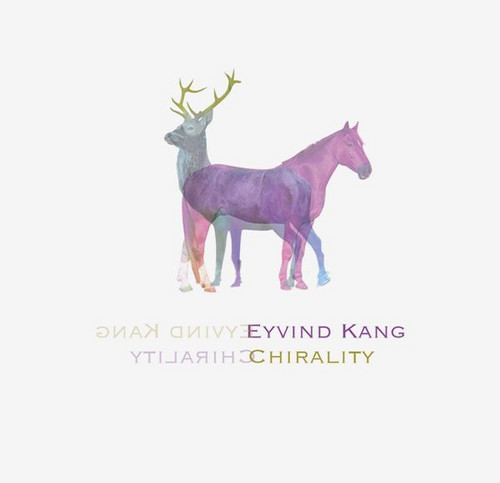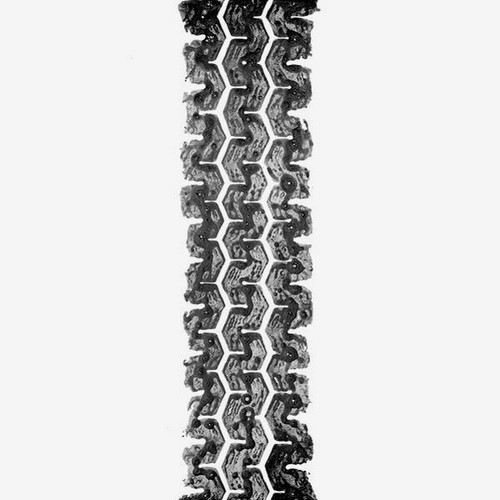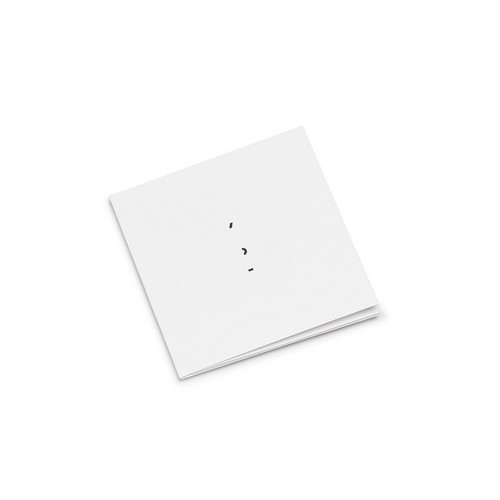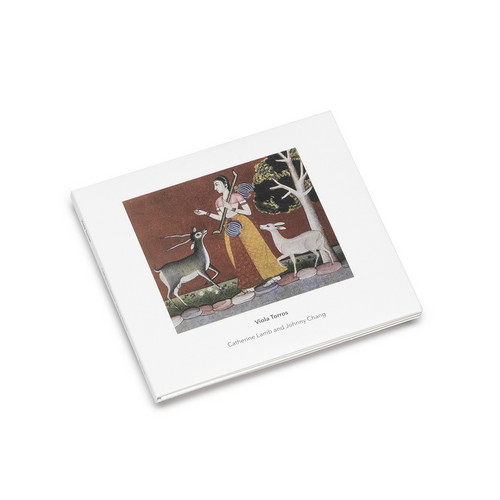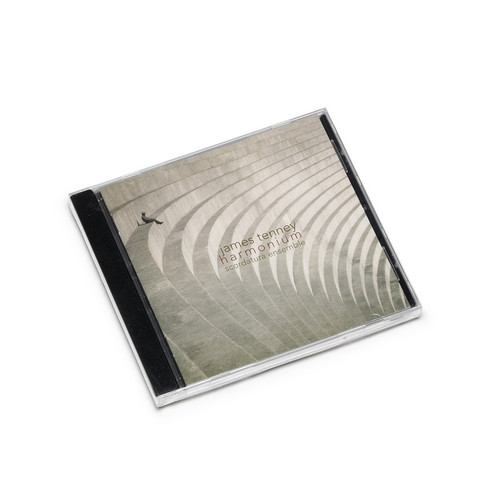Im Klang Sein
*2020 stock* To be within the sound - not to expect anything - no beautiful moments - no big emotions - no artfulness- but to follow, from note to note, a sound that carries the music, a sound within the sound: it changes slowly at a tempo that suggests a movement at a great distance, one that might leave our gravitational field, in which gravity is reduced and which is not even always recognized because of its slowness.
This "sound-space", which touches the cosmos but is at the same time percep…
Angelus Novus
*2021 stock* Angelus novus is the third opera by Madrid composer Jorge Fernández Guerra. This time, he draws on a selection of texts by Walter Benjamin, which he uses to create a dialogue of sorts between a male character and a female character, who could be an alter ego or perhaps an angel.
The dialogue appears to transpire during the final moments of the character’s life, which may be reminiscent of Benjamin’s final moments at the Spanish border as he fled the Nazis.
Angelus novus premiered a…
Improvisaciones
*2020 stock* The double CD Improvisaciones is an homage to the Iberian baroque organ. Germán Valverde Usano’s music reminds one of the rich music tradition of the autonomous community of Castile and León as well as its rich cultural heritage with over 100 conserved Iberian baroque organs. The recordings took place in 2016 in San Agustín in Capillas not far from the capital city Palencia (Spain).
Germán Valverde Usano’s passion for the Iberian organ as well as his extraordinary musical talent are…
De Puro Amor & En Amor Duro
*2021 stock* What is one to make of Maria de Alvear’s two long solos for piano, De puro amor (‘Of pure love’) and En amor duro (‘In hard love’), both composed in 1991. The scores themselves, if one decides to start from here, are completely perplexing. Pages and pages are marked with hastily scratched notes, sometimes repeating themselves dozens of times. Little priority seems to have been given to rhythm, dynamics or articulation; even less to the notational conventions such as barlines, spacin…
Musica Algorithmica
*2021 stock* This CD is the first release to present such a large number of works by Clarence Barlow. This fascinating spectrum of his life's work, thrown into relief by the complexity of his pieces, illustrates his career as a composer. It is a great honour for us to publish his oeuvre. - Maria de Alvear
Musica Algorithmica is a double CD with music by the composer Clarence Barlow, residing for many years in Cologne, Germany, currently professor of composition in Santa Barbara, California. The …
Parallel Words
With Parallel Words, Eventless Plot compose as a true collective, crafting an album that drifts at the intersection of chamber music, electroacoustic experimentation, and subtle jazz inflections. The trio - Vasilis Liolios, Aris Giatas, and Yiannis Tsirikoglou - devise sound worlds marked by contradiction and hybridity. Across the album’s three substantial tracks, instrumental timbres and electronics run alongside each other, oscillating between a sense of tranquil detachment and mounting intens…
Grają Chopina
Małe Instrumenty (Small Instruments) are a band exploring new sounds using a wide array of small instruments. The instruments used in their sonic experiments feature an ever expanding array of professional instruments, sound toys made for children or naive in nature, strange musical inventions as well as a whole array of small items that aren't really instruments but do make a sound. The music created in this way reveals unique colours of sound sometimes beautiful and fine, sometimes surprising …
Gruppo di Construzione
Małe Instrumenty (Small Instruments) are a band exploring new sounds using a wide array of small instruments. The instruments used in their sonic experiments feature an ever expanding array of professional instruments, sound toys made for children or naive in nature, strange musical inventions as well as a whole array of small items that aren't really instruments but do make a sound. The music created in this way reveals unique colours of sound sometimes beautiful and fine, sometimes surprising …
The Claviorganum and the Violin
**250 copies** This is the first published recording of Michel Samson since his unparalleled work with Albert Ayler’s quintet in the late 1960s. Samson’s violin playing is outstanding. His great exuberance and ecstasy, all sliding through an interlocking sadness. The collection on this LP holds numerous 17th-Century works of the Italian baroque, performed by Michel Samson and his wife, Rebecca. It showcases some of the earliest music composed for the violin as a featured soloist. Rebecca accompa…
Arc
Recorded in May 2018, Arc is a Bertrand Denzler’s composition performed by string ensemble CoÔ. Founded by Félicie Bazelaire, CoÔ is a string ensemble bringing together string players of ONCEIM (Orchestre des Nouvelles Créations, Expérimentations et Improvisations Musicales, created and directed by Frédéric Blondy). CoÔ aims to build new directions in instrument research, and create a new repertoire for bowed strings. Félicie Bazelaire works with musicians who are composers and improvisers such …
Flores
**2021 stock** Flores, like any other work of Maria de Alvear, deals with the ideal of inner freedom. This is not a mere claim, it is manifested in the shape of the piece itself. Written in the author's typical mixture of composition and notated improvisation, the text leaves a certain scope to the seven instrumentalists as to the elaboration of the rhythm and at times also the intonation. The score has almost no directives for the parts of the two singers: what and how the singing is performed …
Raga Virga (Live At Montalbâne 17.6.2011)
**2019 stock* * Indian Dhrupad songs meet the chants of Hildegard of Bingen: this extraordinary encounter took place in 2011 at the Montalbâne Festival. It was a successful experiment in a concert that linked together two worlds that at first glance have nothing in common. But this is deceptive, since both musical worlds follow the rules of modal music and can thus lay, intertwine, and harmonize wonderfully with one another. And both worlds come from the context of contemplation in monasteries a…
Solo for voice 58 : 18 microtonal ragas
**2021 stock** The world premiere recording of Solo for Voice 58 by legendary American avant-garde composer John Cage. Italian-German dhrupad singer Amelia Cuni is the ideal interpreter, trained in classical Indian singing but also able to improvise on ragas in a new music context. Cuni developed from Cage’s score of eighteen raga scales a remarkable and unique interpretation that belongs to both the classical Indian and Western experimental traditions. Includes an extensive booklet with essays …
Ways For an Orchestra
Following three beautiful studio albums, Minton and Weston are back with an outstanding program of orchestral arrangements. The music flows with great pathos through renditions of their own most memorable compositions alongside pieces by Eric Dolphy, Luc Ex, Lindsay Cooper, Jacques Brel and others. Music by Phil Minton, Veryan Weston, Eric Dolphy, Arthur Sullivan, Jerry Leiber, Mike Stoller, Lindsay Cooper, Luc Ex, Jacques Brel
Chirality
The new Eyvind Kang album was recorded in Italy with a 25 piece mixed orchestra of traditional strings and winds, with the addition of Moog synthesizer, accordion, percussion, field recordings and voice. It features vocals by Alan Bishop, co-founder of Sun City Girls. Eyvind Kang conductor, chironomy, violaAlan Bishop voice, field recordingsMarco Dalpane accordion, moog synthesizerMG_INC Orchestra:Ferenc Vojnic Hajduk 1st violin; Eliana de Candia 1st violin; Giulia Camardella 1st violin; Eleonor…
Cul de Sac
**500 copies** After "Mars II" and "Fortune de Mer", the album Frederik made together with Timo Van Luijk, Croene releases "Cul de Sac": a record where he explores the boundaries and limits of the piano. A mind-blowing journey through his soul and his past. After graduating from Conservatories in 1999 Frederik Croene embarked on several projects in which he would reflect on the ever-changing and multi-layered identities of the classical pianist. As the Gestalt of his instrument is grounded in 19…
Panopticon Specularities
A native of Istanbul, Turgut Erçetin (1983) studied composition and completed his doctorate studies at Stanford University. In 2016, Erçetin was awarded with DAAD Artists-In-Berlin program for a year-long residency in Berlin, and since then he has been based in Berlin. Erçetin's works engage with issues of sound, not as colors but as sonic entities that interface with time and space. Most of his works, therefore, are involved with acoustics and psychoacoustics as well as computer aided compositi…
Fremde Zeit Addendum 5 · Solo V Für Klavier
Jakob Ullman's 5th solo work for piano is atypical for a piano performance, using electronic playback and requiring three assistants sustaining a soundscape to realize a concept of "gravity".
Viola Torros
Viola Torros is more than a historical reference - it is an ongoing collaboration between Catherine Lamb and Johnny Chang, centered around the research, arrangement, and interpretation of fragments attributed to the mysterious composer Viola Torros. While the project suggests an archaeological recovery of lost medieval works filtered through Arabic, Byzantine, and Indian modal traditions, the underlying narrative is a playful fiction - Torros herself appears to be a fictional construct, allowing…
Harmonium
Just Asked whether he would describe his music as “Sound for the sake of sound,” James Tenney (1934–2006) replied, “It’s sound for the sake of perceptual insight—some kind of perceptual revelation.” This release aptly demonstrates Tenney’s deep exploratory fascination with the nature and potentialities of aural perception. His attraction to these topics was simultaneously intellectual and sensuous, and its musical products at once invite both sustained reflection and the most immediate of corpor…
